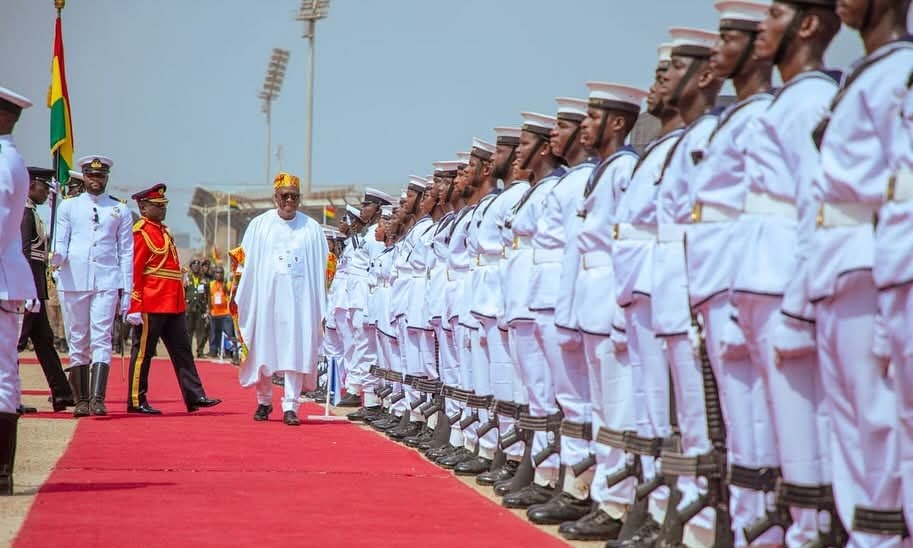With the advent of the new political administration in Ghana, led by His Excellency President John Dramani Mahama, imminent changes are bound to be undertaken for the implementation of the government’s vision and aspirations.
It is in this vein that the author of this article – Victor Doke, PhD, a lecturer at the Kofi Annan International Peacekeeping Training Centre (KAIPTC), shares his views on Imminent Changes within Some Key Security Agencies, State Institutions, and their Implications on National Security and Cohesion.

What will happen within the Electoral Commission?
The Electoral Commission (EC) in my personal opinion is another state institution which I classify under the security sector. Because of the role they play, organizing elections and ensuring the process is free and fair; with the end goal of the citizenry choosing a leader which everybody has voted for.
The allegations of some Commissioners affiliated to the then ruling party resulted into heightened tension and the needless self acclaimed vigilantes that we experienced in the elections held on December 7, 2024.
The aftermath of the elections with regard the violence orchestrated by certain youths in Damango and elsewhere attest to the fact that; declaration of results should be done early and swiftly with precise accuracy. If the EC will organize a transparent, free, and fair elections in 2028 without any drastic reforms in standard operating procedures such as collation and declarations of results, then we are sure to have violent confrontations in the country next elections.
Failure to implement reforms would lead to accusations, suspicions, and aggression resulting in violence in the next elections. If we are to prepare, anticipate, and work towards ensuring peaceful 2028 general elections, i propose that appointments to the position of Commissioner’s must be done transparently. Most importantly the system currently being used to collate results needs to be upgraded. Any appointee alleged to be part of the ruling party should not be allowed near any position.
With that being said, there could be a lineup of petitions aimed at some current Commissioners due to the allegations of being affiliated with a certain political party. Will the President ensure a very transparent process in appointing a new set of Commissioners who would not have any political affiliation and work for the interest of the country? I believe there should be a robust system that makes it difficult for any Commissioner to make changes to regarding election processes.
The Ghana Police Service and what is expected

The Ghana Police Service’ internal bickering has attracted unwanted attention. The service could experience a massive shakeup in leadership soon. The Deputy Inspector General of Police’ (DIGP) position which attracted a lot of attention, if sustained, may be a recipe for clash of egos involving the two top officers, in my personal opinion.
However, that position could be maintained depending on a mutual agreement between the appointee and police hierarchy. The President has the power to do as he wishes but in this situation where allegations of counter instruction’s within the service between the DIGP and the IGP, the President should tread cautiously.
The Immigration, Prison, and Fire service’s will all have changes made regarding the hierarchy.

Ministry of National Security
The National Security Ministry will definitely see a change regarding leadership. A new Minster will be named, but one with vast experience who has no questionable records. We would also see a new head with regard to the intelligence bureau. The President has already named six individuals to oversee and coordinate national security matters. My view is that these individuals could be the same substantive leaders to lead the various security agencies.
Ghana’s Defence Ministry
With regard to the in-coming Defence Minister, this personality must have the experience and knowledge not only on internal security issues and apparatus of the country, but also the professionalism to collaborate with defence counterparts in neighboring states. This is important in the face of threats such as violent extremism, cyber attacks, unconstitutional takeovers, violent ethnic conflicts, and related sub-regional threats.
The Defence Minister must be an an astute international expert to build ties with neighboring states for collaboration and intelligence/information sharing, as the President has reiterated the need to build ties with neighboring states. It is important for the new Defence Minister to command respect from the various heads of the security agencies.

Special Focus on Bawku Conflict
The conflict as I will term it, is on hibernation. With all appointments successfully made within the security sector, we should see a robust conflict resolution approach with the aim of resolving the conflict.
First of all, if an audit into the expenditure on operations relating to the Bawku conflict can be done, it will serve as a yardstick and advise the various security heads to know which areas to focus on more to end the conflict. This should not be business as usual.
The Chieftaincy Minister should be one who is knowledgeable with regard to the historical antecedents of most of the conflicts (i.e., chieftaincy). The Minister should have added skills in negotiation and mediation; this will inform him/her to be pro-active, facilitate solutions, and lead sustained engagements with the conflict actors.
Conclusion
The Commander-In-Chief has an enormous task to keep the security agencies united against internal and external threats. All these changes must be implemented strategically and must involve multi-stakeholder consultation’s taking into account the existential threats we face. Our security space will be secured so long as we have the interest of the country at heart. This should not be the usual appointments to appease certain personalities. The security apparatus must be operated in the interest of Ghana to achieve its objective and not to intimidate the citizenry or unnecessarily political opponents.
